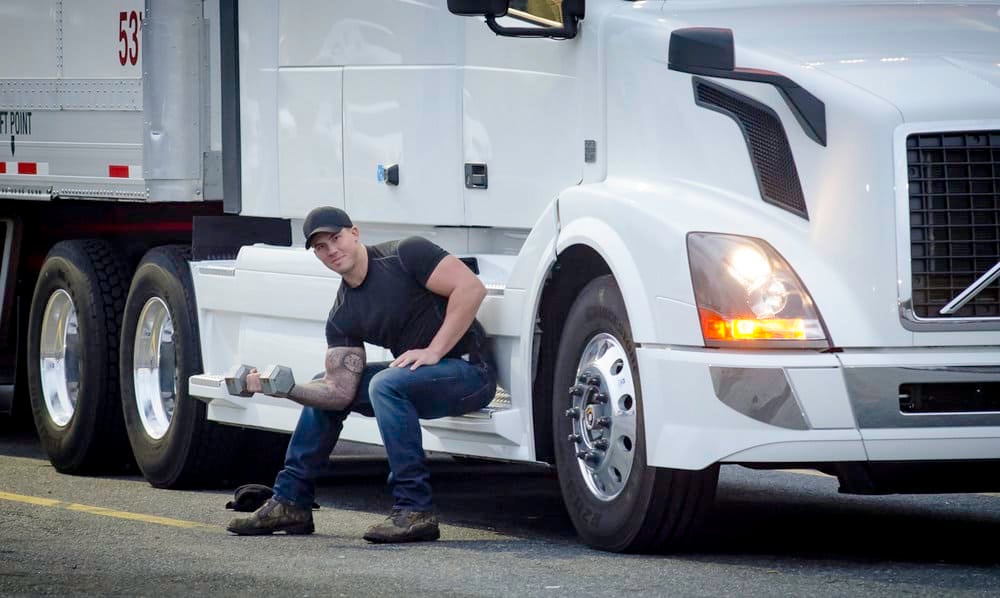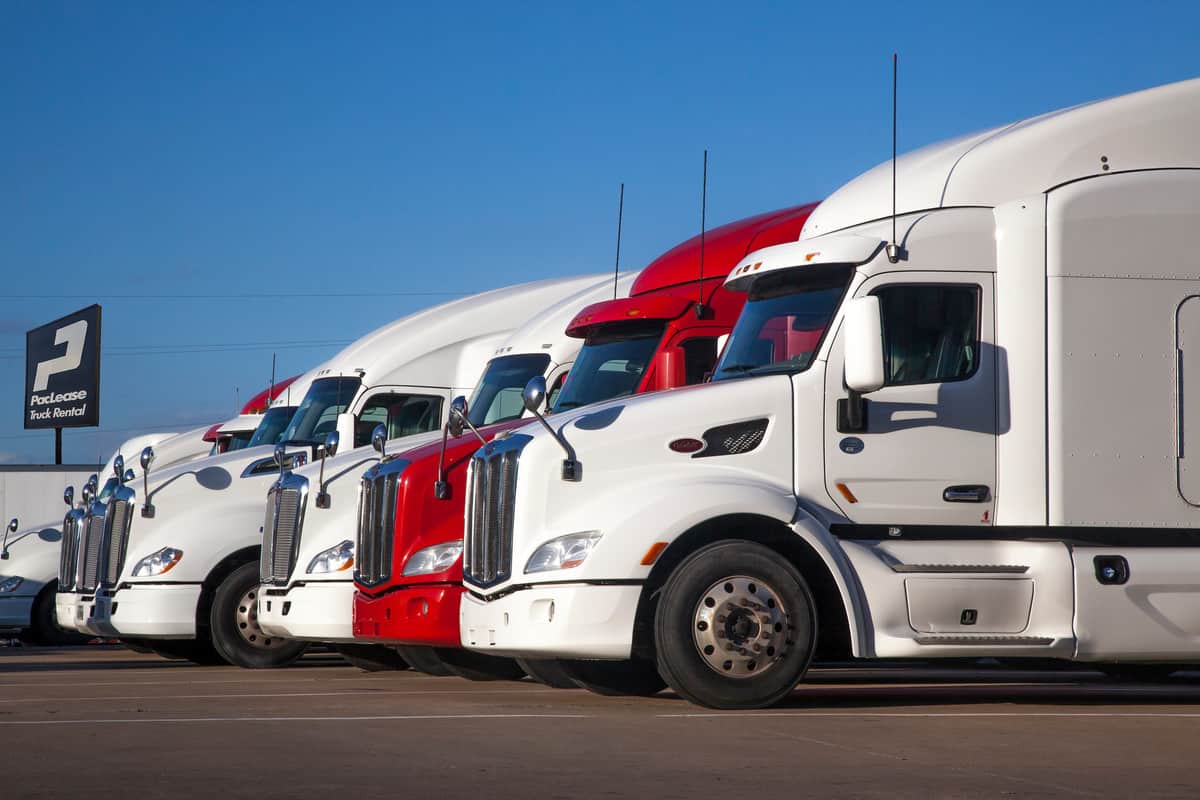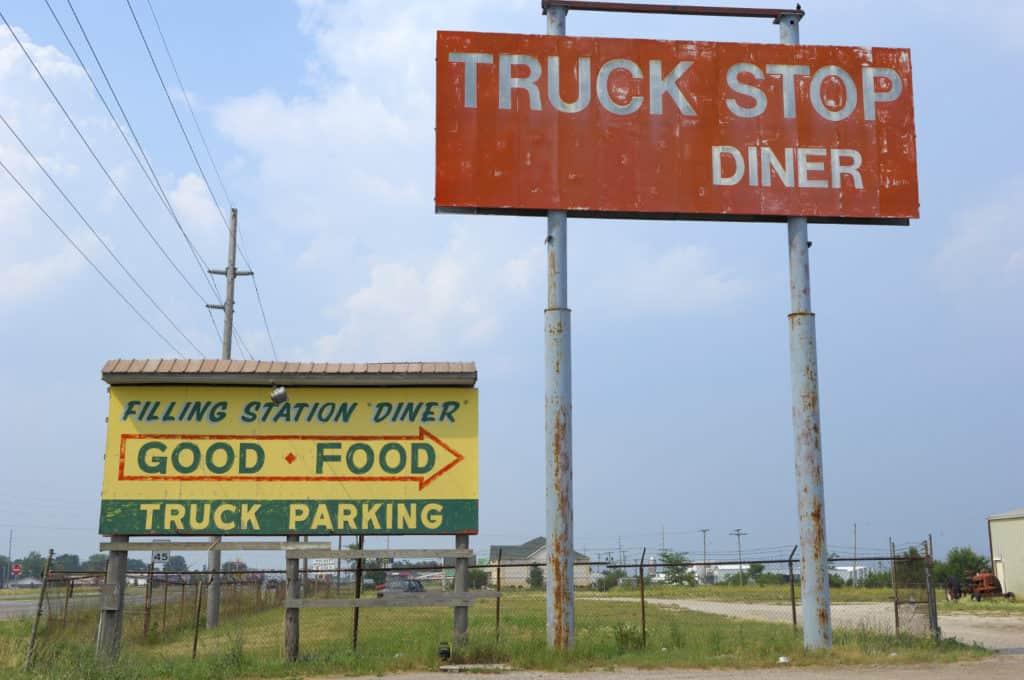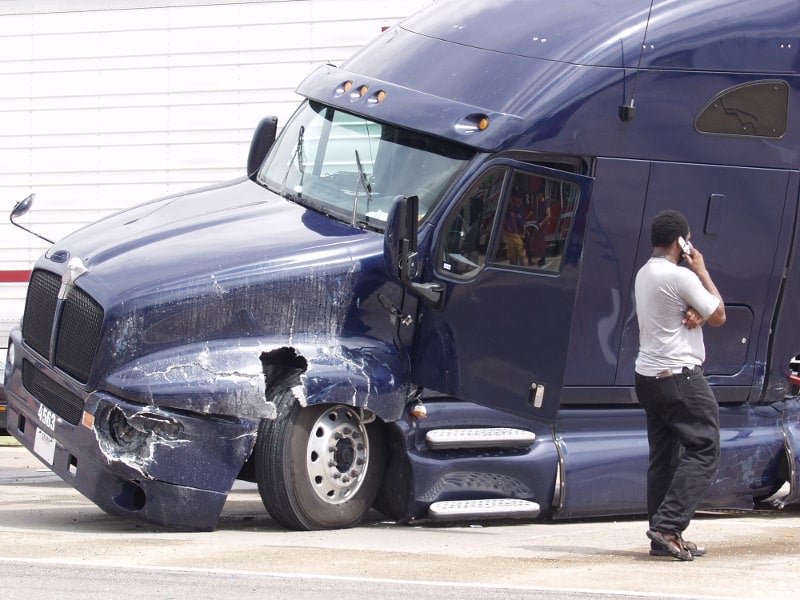2019 will be remembered as a really tough year for trucking companies. As a whole, the industry did not generate a profit. Largely, this was caused by too much capacity added to the market in 2017 and 2018, after which (2019) the freight market slowed down.
Depressed spot rates and pressure from shippers to move freight to cheaper carriers created a ceiling on contract rates in 2019 and caused spot rates to trade near the market floor. All of this combined with the fact that carrier costs jumped double digits in most categories compared with the last freight recession of 2016. Driver wages, equipment and insurance costs have all seen drastic increases in just two years.
Some asset-based carriers talked about 30% driver wage increases and still were struggling to find and keep drivers.

To an outsider, trucking sounds like a brutal and unforgiving industry, where only the strong survive. To an insider, the situation offers hope. Amit Mehrotra, transportation analyst at Deutsche Bank called trucking “the most cyclical industry on the planet.” I tend to agree and struggle to find an industry where the booms are as dramatic as the busts.
The cyclical nature of the trucking industry operates more like a circus wheel, where the market is constantly in motion up or down. Earlier this year, large enterprise trucking executives talked about how optimistic they were about 2019. Most of them failed to meet their forecasts. In recent weeks, Knight-Swift, the largest operator, pre-released that it was going to miss its quarterly earnings and described the outlook for 2020 as “murky.”
Mainstream media has also caught on. The never-ending cycle of bad news and bankruptcies have made most Americans realize that the industry is hurting and in bad economic shape. The truck manufacturers have laid people off and talked about tough conditions due to order cancellations. This, in turn, will keep truck manufacturers from building too many trucks and dealers and lenders from offering generous terms to move trucks out of inventory.

(Photo credit: Paccar Inc.)
All of this is very positive for the industry. Now that the bellwethers of the industry have capitulated and Main Street has become aware of how tough the trucking industry is, banks will start to get shaky and tighten up their underwriting facilities.
We also heard that one of the major truckstop chains has cut off hundreds of small fleets from direct bill credit accounts, out of fear of a credit crunch in the new year. Fuel is a low margin business and no truckstop wants to take a bath when carriers abruptly shutdown.

And don’t leave the insurance carriers out of the mix. If there is anything that is going to purge capacity, it is the insurance carriers. Nuclear verdicts are top of mind. Jury awards are getting bigger and only a handful of insurance carriers are brave enough to underwrite a trucking company.
When carriers see their policy quotes in 2020, they will find double digit increases in most of their primary coverages and much higher umbrella coverages. The cost is only half the story. Finding coverage will be a battle for many, especially carriers that haven’t run a tight ship.

With the Drug and Alcohol Clearing House coming online January 6th, carriers must do a lookup on a driver if they choose to hire him. A driver’s drug and alcohol incident history will become public record. Basically, any violations that the driver has had will become recorded in the Clearing House.
Add this to the fact that the FMCSA updated its policy on random substance testing to 50% of drivers employed, it means that the chances of a driver with an alcohol or drug problem getting caught just increased dramatically.
In the past, carriers may not have had access to this information or found ways to ignore it. No longer. The information is public record and a driver that has a history of violations will find it nearly impossible to gain employment in the trucking industry.
Insurance companies will be the enforcement mechanism for compliance. They will mandate that carriers have strict policies and criteria regarding hiring drivers. No insurance company wants to get stuck with paying a court settlement by insuring a carrier that has a history of hiring drivers with violations in the Clearing House. In many ways, the Clearing House will become a “no drive” list for the industry.
Even if a carrier that has a spotty safety history is able to find insurance, it will find insurance policies prohibitively expensive.
All of this is positive for trucking carriers. Insurance companies will keep the riff-raff out of the industry, which will purge a great deal of capacity.
The spot market will once again heat up as shippers scramble for capacity. Rates will accelerate.
This time around we won’t see an instant correction with capacity coming back quickly. Bank lenders, freshly burned from 2019 and obsessed with mitigating their exposure to trucking companies, will be reluctant to provide financing.
And large asset-based carriers, watching AB5 and other nutty policies from state governments that mitigate how carriers classify their contractors, will largely stay away from building larger independent contractor pools.
Trucking will feel much like the Baylor Bears under Matt Rhule. Two years ago, Baylor won one game the entire season. This year, the Bears lost to one team (Oklahoma) and will play the University of Georgia in the Sugar Bowl. That is how 2020 will finish up for the larger enterprise carriers.












Reo
I truly believe that we have the best Trucking system in the world. This industry is extremely large and is the backbone of our country. Great drivers, great equipment and is not run by the government. What is the problem. Well, as a private pilot we have a saying. ” If your not ahead, then you are behind.” So, our biggest issue is that we react instead of planning and setting goals. Most Doctors are great people with knowledge. However, most cannot run their own offices. They are not business people. They don’t like it So they are not good at it. As carriers know their business now more than ever. They still don’t like managing. Take time to listen to someone that loves business management. Most of the failures are small carriers where the driver is also the manager. They work hard and most are able to balance the two. However without business leadership their planning seems to go out the door and we rely solely on the market, which is unforgiving. How many times have you said , ” If I just had this (?) many more trucks, I would be okay.” Too many times I assure you. I believe we have the best system in the world. Best drivers in the world. We need to give our system to someone that loves management. 2020 is going to be a good rear. Plan on it. Reo Hatfield
Noble1
GOOGLE THIS !!!
“Court cases reveal secret litigation networks for trucking accidents” -CCJ digital
Quote :
“For instance, if a truck driver has a rear-end collision the injured party may go to a doctor who is connected to the litigation-funded world to get treatment they do not really need. The result is an inflated claim.
“It happens all the time,” Matthews says. But is the world of litigation funding big enough to explain the rising cost of truck insurance?
“Absolutely. There is no question whatsoever,” Matthews adds. “It is hard to believe this stuff is really happening.”
BE VIGILANT !
In my humble opinion …………
Troy
No sugar tonight in my coffee. No sugar tonight in my tea.
Vega
I dont see how they say it’s going to get better for 2020 the rates are down to nothing shippers take hours to load this elog is making thousands file bankruptcy insurance is skyrocketing and it’s going to get better yeah good try to try to get drivers as an owner op even I have to file bankruptcy this year cant afford all the cost with companies like knight-swift cr England jbhunt and all other big carriers that hire drives and pay them chump change where drivers make 2 to 300 a week and can only do 1 load a week that’s how they keep their rates down brokers posting ghost loads thanks to these big carriers is why the industry went to crap and thanks to werner we have these stupid elogs that you just loose all day at a shipper see DOT does not see that they dont care anything to make them money I really wish truckers from all the us would just stop for a week and see everything go to hell because no one is bringing anything maybe like that they would change regulations and werner I’m sure greased some senators pocket to get the elogs to go thru nothing safe about elogs makes drivers go faster and park on side of highways tell me what’s safe about that and shippers need to start getting fined for not loading or unloading in an hour or less
Noble1
Quote:
“I really wish truckers from all the us would just stop for a week and see everything go to hell”
I certainly understand your frustration and desperation .
However, before you make yourself believe that if every trucker stopped for a week would be the solution , remind yourself why regulators mandated the ELD . That was “their solution” towards the paper log fudging “problem” due to the “propaganda” of safety in an attempt to enforce regulations .
Now you’re talking about causing a nationwide economic hardship on the most powerful country in the world .You said you would like to see everything go to hell . In doing so they will retaliate , and I am not one to believe that their retaliation would be of a friendly nature .
However, what you’re talking about would take immense coordination and a mutual agreement among all truck drivers due to some sort of extreme suffering . These sorts of actions usually have a predefined solution following the act , such as with a coup . You don’t just pull something like that off and “hope” things will work out for the best on their own .
You mentioned : “Maybe they would change regulations” . You cannot allow yourself to “assume” when you intend on pulling off such an intense move , especially on a country .
But let’s pretend and suppose that you “American truckers” managed to get one third of your truckers to agree and take a week off all at the same time . The industry would know what you’re planning . They would have a plan as well in an attempt to fulfill the demand while you’re off . It’s not like you would be planning to pull off your move in secrecy . Even unions must abide by laws .
If you think that you have an “immigration” problem now , attempt your nationwide “strike” and you might regret the “solution” your opponents may respond with . Why ? Well you certainly wouldn’t be given a green light by your employers to all take a week off at the same time . Therefore you would be jeopardizing your “job” by insisting and in doing so .
If they manage, which they probably would , to fulfill your position for a week or more , then you would have to implement another strategy . Where does the insanity stop ?
Furthermore , you’re talking about attempting to cause a National Emergency in your country right ? Ie: everything going to hell . In doing so you will have just empowered government to enact in ways normally not permitted .
You need to “plan” these sort of actions extremely well and anticipate how others are likely to respond . Currently there is a GLUT of truck drivers and too much capacity , not a shortage . Going on a coordinated vacation for a week would be most welcome by the industry , especially after the winter holiday seasonal peak in demand LOL !
Seriously though , you would most likely be jeopardizing your jobs and your liberty . Expect more regulations to be created further reducing your liberty .
But let’s look at this from a different perspective . Let’s assume that all carriers collude and they managed to fix the rate and increased it by double . Laws are in place to prevent this but let’s just pretend for a second . Let’s pretend this happened . This would increase the cost of shipping , inflationary . The one’s who would be absorbing this increase in cost would retaliate by increasing the cost of their goods and passing it down to the consumer(YOU) .
So now let’s assume you earn double your current wage but the cost of living also doubled . Would we be any better off than where we are now ? Transportation is huge . It doesn’t just involve one company .
WE need to think competitively for now . WE need to implement a structure where WE earn more by being creative . By doing things differently you gain an edge . Our problem is that we depend on the wrong people to find solutions to “our” problem(s) . “Their” solution is to replace truck drivers with autonomous trucks . Then what ?
Perhaps we should unite and position ourselves to “compete” in more ways than one , and in the process earn more due to implementing creative and lateral thinking . What we should be thinking about doing is increasing our profits while keeping costs low and passing that lower cost down to the general public . However, the more the general public earns , the more they tend to spend . The more they tend to spend transitions into inflation based on the structure in the current system . Inflation causes an increase in competition and innovation . Competition reduces costs(rates) ,income /earnings , and causes change . We need to position ourselves to profit from those “swings” , not be victims of those “swings” .
In my humble opinion …………..
Mike
I was speaking with an XPO sales agent, he told me what was killing the bottom line was the outrageous maintenance costs on the equipment. I can see that, as few shops out here even have a basic understanding of these emission systems, much less basic diagnostic mechanical skills. Most shops employ parts changers, plug in the computer and replace the turbo, then the EGR cooler, and then replace the… Funny thing, they never fix the truck, they always seem to miss that $80 sensor or misdiagnose the carbon packing in the motor amongst other things. Imagine that?
And then the insurance… I don’t know how guys are making it out here with one of those $4000 a month truck notes, I get good rates, but not that good when all of the other expenses are thrown in. Time to hang it up, hoping 2020 will be a better year. not holding my breath.
Aurelio Haro
No because you cut the cake that means you’re going to get it the big part all the time I know some business that the workers get the big part sometimes
. But they still in business. It’s called
sharing
Aurelio Haro
It’s not the starter what it counts it’s how you finish if you are honest you will survive if the tacos are so good they don’t need advertisement . Pay the driver decent wages that’s all 10 4
Mr. Dwayne Byler
I’d say the main reason many companies sunk into the abyss is because of the thousands of dollars you spend on each truck occasionally for unnecessary exhaust parts to comply with the after treatment clean air laws. That are unnecessary because the truck engine is burning clean enough. If you want people to stop getting cancer quit selling tobacco & other harmful products. No you want to make money selling harmful products. You want to make money selling exhaust parts. You want to make money supposably curing the consequences of harmful products. You have one motive to make trillions. You could not care less about the health of your fellow human being. You would like to have him aborted.